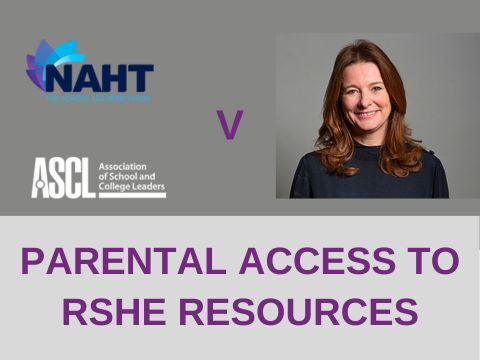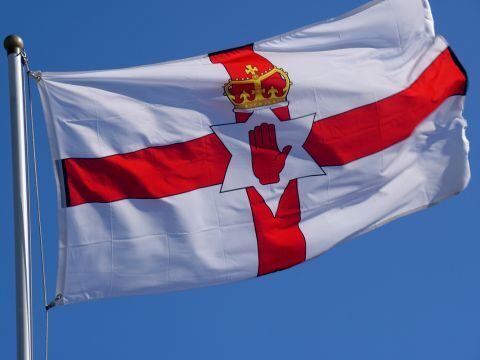

CALL TO ACTION: PLEASE BE READY TO RESPOND TO FORTHCOMING GOVERNMENT CONSULTATION ON RELATIONSHIPS AND SEX EDUCATION (RSE).
The aim of compulsory sex education has been pursued as part of a concerted campaign in recent years, spearheaded by a powerful and well-funded sex education lobby, and supported by large sections of the media and, within Parliament, by a well-co-ordinated group of activist MPs. In March 2017, the Government finally assented to their demands and announced that it was introducing amendments to a major piece of child welfare legislation, The Children & Social Work Bill, which was then going through Parliament. The Children & Social Work Act 2017 received Royal Assent the following month on 27th April 2017, and, under Sections 34 and 35, the Act enshrines into law most of the key demands of the sex education lobby in removing any control, or at least final say, of parents over what and how their children are taught in school on the subject of sex and ‘relationships’. The Act makes so-called ‘Relationships Education’ compulsory at ALL primary schools and ‘Relationships and Sex education’ compulsory at ALL secondary schools. It also gives the Government the power to make the subject of Personal, Social & Health Education (PSHE) statutory in its entirety, pending the results of a forthcoming consultation. PSHE is another channel through which the teaching of sex education and lifestyle issues may reach children in the classroom.
The legislative changes are due to come into effect for the start of the 2019/20 academic year, but, prior to that, the Government has announced a public consultation in order to help determine statutory guidance over the content of these new compulsory subjects, as well as other important related matters, which will be published early next year. Schools are then being given just over a year to prepare their new R(S)E and PSHE curricula for the start of the new school term in September 2019.
What the new law means in practice?
Parents should be very concerned about the consequences of this new legislation. As Sir Edward Leigh MP commented in Parliament, ‘it is understandable that some will view this as a state takeover bid for parenting’. The Act can be viewed or downloaded here from the Parliament website. Section 34 of the Children & Social Work Act 2017 makes the following key changes to the teaching of sex and relationships education, which, up to now, schools could choose not to teach or, if they did, had significant freedom to teach in their own way, since the subject was not part of the National Curriculum. In an attempt to allay concerns about teaching ‘sex education’ to primary aged children, the new law, at least on the surface, stipulates two different ways in which the new compulsory subjects will be implemented in the primary and secondary sectors:
- For primary schools we are presented with this ambiguous new subject entitled ‘Relationships Education’, for which there is no right of withdrawal for parents in ANY kind of primary school (whether communities, faith, foundation, free or independent schools, etc). It is announced that the content of ‘RelEd’ will be subject to a public consultation to take place in autumn 2017 (exact date as yet unconfirmed). Despite it’s innocuous sounding name, it is highly likely to be used to promote the LGBT and other sexualising agendas to primary-aged children (see below).
- For Secondary Schools, what is termed ‘Relationships and Sex Education’ (RSE) is being made a compulsory subject for ALL secondary schools of whatever kind (whether communities, faith, foundation, free or independent schools, etc). The language of the Act is ambiguous so it is as yet unclear to what extent parents could still withdraw their children from RSE – or indeed ‘sex education’ at any age .
- One of the dangerous things about the Act is the scope it gives to the Secretary of State to regulate for content, approach and possibly even the right of withdrawal. In fact, the Government states in its RSE policy document (March 2017) that one of the issues subject to consultation will be ‘to clarify the age at which a young person may have the right to make their own decisions’. In other words, the resulting statutory guidance may give a child at any kind of school the right to override their parent’s decision to withdraw them from sex education, at whatever permissible age is decided by the Secretary of State.
What is the Justification for making ‘Relationships Education’ compulsory?
The need for ‘Relationships Education’ has predominantly been presented as a child welfare issue, made necessary in order to ‘equip’ children for ‘life in modern Britain’. It is claimed that RelEd will help protect them from sexual abuse, and from sexual risks from digital technology (‘sexting’, pornography, internet grooming, and other forms of exploitation). However, there is no real evidence that any such school-based interventions of this kind have worked in the past – but there is growing evidence of the unintended consequences. For example, a study of recent serious case reviews and the Independent Inquiry into Child Exploitation in Rotherham revealed how a culture in which underage sex was normalised, with children treated as autonomous adults and their parents side-lined, was one of the key factors in facilitating the abuse of underage girls.[1]
The point must be made strongly that children are safest when parents, not the state, act to protect their children from the dangers that are being used to justify compulsory RelEd. Children are most exposed to the dangers of digital technologies outside of school, and a one-hour lesson on such matters cannot replace the ongoing loving vigilance of parents in the home, with regard to their children’s development and behaviour.
What will be the scope of the consultation?
Some key issues which, as a parent, you should have the right to comment on in the consultation include the following:
- What should be included (or not included) in the content of Relationships Education for primary school children?
- What should be included (or not included) in the content of Personal, Social, Health and Economic Education (PSHE), as distinct from Relationships Education, for children of primary school age? (Note that PSHE is another medium by which sex education, LGBT and other social or lifestyle issues can be taught to children).
- What would be an ‘age-appropriate’ manner for this content to be delivered at each development stage?
- At what age should school children have the right to override their parents’ decision to withdraw them (to ‘make decisions for themselves’)?
Some of the dangers of the new legislation to respond to in the consultation
- The new law means that the state officially becomes the lead educator in every child’s moral development, with regard to issues relating to sex and relationships. This crosses an important line for parents, as up-to-now the parental opt-out for sex education meant that there was at least some recognition that parents ultimately were the primary educators of their children and mattered more than the state. Parental right of withdrawal for Relationships Education at primary school, and the question of whether RelEd and RSE should be compulsory subjects at all (in primary and secondary schools respectively), will not be issues covered by the consultation. As far as the Government is concerned, these issues have already been decided by the passing of the new law. However, the consultation is still an opportunity to protest our concerns and attempt to shape relationships education for the better, as well as to build a firm foundation of public support for future campaigning.
- In theory the new law allows parents to withdraw their children from ‘sex education’, as opposed to ‘relationships education’, at primary school. However, sex education could easily be smuggled into RelEd lessons and parents will be powerless to protect their children. The right of parental withdrawal from ‘sex education’, purportedly upheld by the Act, is also from the start being undermined in another way, for the ‘age at which a young person may have the right to make their own decisions’ is one of the issues that will be subject to the consultation.
- ‘LGBT’ issues and ideology will be incorporated into RelEd at primary school. The Government has stated that it will be working with LGBT organisations when deciding on the details of what will be taught, and that ‘LGBT’ issues will be included in RelEd. It is imperative that parents fight to keep damaging LGBT indoctrination out of their children’s classroom.
- The legislation provides for no regard to the central importance and significance of real marriage (between man and woman) and family life. The Act only speaks vaguely about the teaching of ‘healthy relationships’, which is a highly subjective term. It is crucial that parents strongly assert the necessity of preparing children for successful married and family life, and resist the imposition on their children of damaging ideologies and the promotion of immoral and dangerous lifestyle choices.
SPUC Safe at School will be issuing full guidance on responding to the consultation and a more in-depth briefing as soon as the consultation is published. The Government has not yet specified a date for this, but it has been announced that this will take place in Autumn 2017.
Dr Tom Rogers
Education Outreach Manager
Society for the Protection of Unborn Children
[1] See Norman Wells, Unprotected: How the Normalisation of Underage Sex is Exposing Children and Young People to the Risk of Sexual Exploitation (Family Education Trust, 2017)






